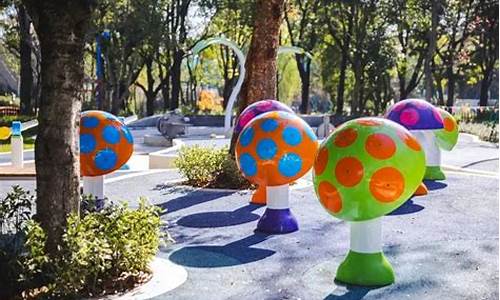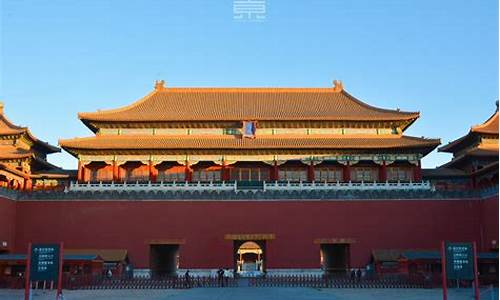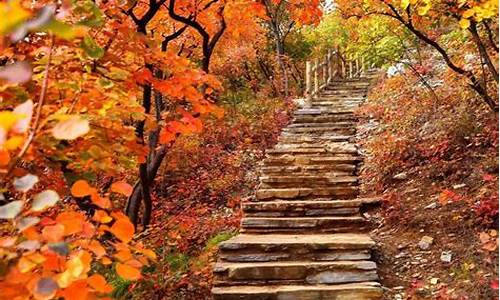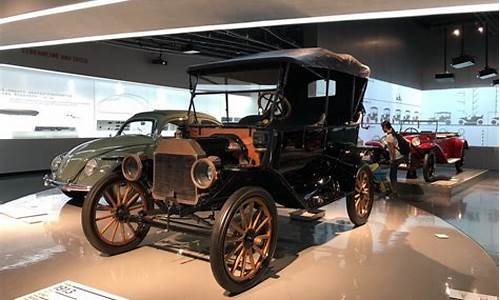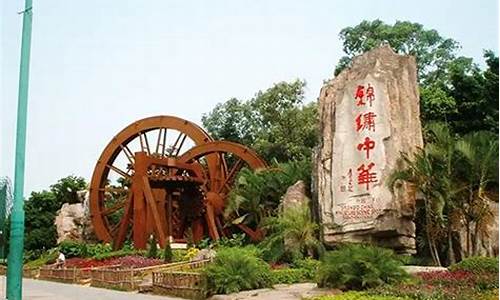水上公园英语单词,水上公园英语
1.英语问题
2.英语短文:随着端午节的到来,刘洋打算邀请李杰和其他一些朋友明天上午九点在公司门口集合,在水上公园
3.我们骑车去水上公园,爬山,到山顶野餐并休息,拍照,做游戏,放风筝,英语翻译
4.八年级下英语第九单元试卷答案

1. You have just come back from your hometown.
你刚从你的家乡回来。
* have come现在完成时
现在完成时用来表示之前已发生或完成的动作或状态,其结果的确和现在有联系。动作或状态发生在过去,但它的影响现在还存在;也可表示持续到现在的动作或状态。用助动词have/has +动词的过去分词构成。翻译成汉语时通常会用到“已经”等字样。常与already, yet, just ,ever, never, in the past years, in the last five years, since, for 等词或词组相连用。
e.g.We have seen this movie already.
我们已看过这部**。
e.g.She has been in this city for three years.
她在这座城里已经呆了三年了。
e.g.The train has just left.
火车刚刚已经离开了。
e.g.Have you seen the doctor yet?
你已经看过医生了吗?
现在完成时与一般过去时的区别:
*现在完成时强调某一发生在过去的动作或存在的状态与现在的联系。
e.g.John has been to MountHuang with his parents.
约翰曾经和他父母一起去过黄山。
e.g.I have learnt a lot from this.
我从中学到了许多东西。
e.g.We have been there for many times.
我们曾去过那里很多次。
e.g.Have you ever been to a water park?
你去过水上公园吗?
e.g.She has never been to this city.
她从没来过这个城市。
*过去时表达发生在过去的动作或存在的状态,只表示一个信息,不强调与现在的联系.
e.g.I have done something in a disabled children’s home. I did it during this summer holiday.
我曾在一个残疾儿童之家帮过忙。是今年夏天的事。
e.g.They went to the space museum last year.
他们去年去过太空博物馆。
e.g.What did you do last Sunday?
你上个星期天干什么?
e.g.I saw him yesterday morning.
我是昨天上午看见他的。
e.g.She didn’t go there last week.
她上个星期没去那里。
以上句中有明显的过去时间状语,所以用一般过去时。
2. Where have you been, Jane?
你去了哪里,Jane?
have been to 曾经去过某地(现在已回来)
e.g.Have you ever been to the Great Wall ?
你去过长城吗?
e.g.I have been to your hometown.
我曾经去过你的家乡。
* have /has been to 与 have /has gone to 的区别.
have /has been to… 曾经去过…(但已返回)
e.g.I have been to an English training school to improve my English.
我去了一个英语培训学校去提高我的英语。
e.g.I’ve been to Beijing three times.
我曾经去过北京三次。
e.g.-Have you ever been to that city?
-Yes, I have.
你曾经去过那个城市吗?
是的,去过。
have /has gone to“去了…(还没回来)”
e.g.-Where is your sister?
你姐姐去哪儿了?
-She has gone to the city library.
她去市图书馆了。
e.g.Mr Wang has gone to American. He will be back next month.
王先生去了美国。他将在下个月回来。
3. Have you ever taken part in any activities to help children ?
你是否参加过任何帮助儿童的活动?
ever(用于一般疑问句、否定句以及表示条件和比较的从句)在任何时候
e.g.Have you ever been to Beijing ?
你曾经到过北京吗?
e.g.Have you ever fed the disabled children ?
你曾给残疾儿童喂过饭吗?
e.g.This is the most interesting movie I have ever seen.
这是我曾看过的最有趣的一部影片。
e.g.If you ever come to Shanghai , be sure to let me know.
如果你到上海来,务必通知我。
4. Parents couldn’t afford education for their children.
父母们负担不起孩子们的教育费用。
afford vt. 负担得起(…的费用、损失、后果等)通常与can ,be able to 连用。
e.g.He wanted to watch the game, but he couldn’t afford to buy the ticket.
他想去看球赛,但又买不起票。
e.g.He isn’t able to buy a new car, so he has to buy a used one.
他买不起新车,只好买辆二手车。
5. Our job was to grow cotton.
我们的工作是种棉花。
be + to do sth. 构成系表结构。
e.g.Our duty is to help them.
我们的职责是帮助他们。
e.g.What he wanted to buy is a nice bike.
他想要买的是一辆精良的自行车。
6. I had to divide my money into two parts.
我不得不一分钱分成两半来花。
divide …into… 把……分成
e.g.Let’s divide ourselves into two groups.
我们分成两组吧。
e.g.The river divides the village into two parts.
这条小河将村子分成两半。
7. Kangkang, you should feel satisfied with your life now.
康康,你应当对你现在的生活感到满意。
feel satisfied with… 对……感到满意
e.g.Our teacher felt satisfied with our grades.
老师对我们的成绩感到满意。
e.g.Do you feel satisfied with what he has done ?
你对他所做的感到满意吗?
8. But China has developed rapidly in recent years.
但是中国在近几年里取得了飞速的发展。
develop vt. 发展、发扬
e.g.The place has rapidly developed from a small village into a town.
这个小村庄已经很快发展成一个城镇。
e.g.She developed the company from nothing.
她白手起家办起了这家公司。
9. Thanks to the ’s efforts, Beijing, the capital of China, will host the 2008 Olympic Games.
由于政府的努力,首都北京将承办2008年奥运会。
thanks to … 幸亏有了……;由于……
e.g.Thanks to the teacher’s help, we got good grade in the exam.
多亏有了老师的帮助,我们在考试中取得了好成绩。
e.g.Thanks to the bad weather, we have to put the sports meeting off.
由于天气不好,我们不得不将运动会延期。
英语问题
Have you ever been to the science museum?
你曾经去过科学博物馆吗?
Yes, I have been to the science museum / no, I have never been to the science museum.
是的,我去过科学博物馆/不,我从来没去过科学博物馆。
Have you ever visited the space museum?
你曾经参观过太空博物馆吗?
Yes, I have. I went there last year / no, I haven't.
是的,我参观过, 去年我去了那里/ 不,我没参观过。
I have been to the art museum many times. I also, I have visited the natural museum.
我去过美术博物馆许多次了。我也是,我也参观过自然博物馆。
I've never been to a water park, and neither have I.
我从来没去过水上公园, 我也没去过。
这部分内容主要考察的是一般过去时的知识点:
表示过去某个时间里发生的动作或状态;过去习惯性、经常性的动作、行为。在英语语法中,“时“指动作发生的时间,”态“指动作的样子和状态。
一般过去时表示在过去某个特定时间发生,也可以表示过去习惯性、经常性的动作。一般不强调动作的影响,只说明的事情。 句式:主语+动词过去式+宾语+其它 I had a word with Julia this morning.今天早晨,我跟朱莉娅说了几句话。He smoked many cigarettes a day until he gave up. 他没有戒烟的那阵子,抽烟抽得可凶了。
英语短文:随着端午节的到来,刘洋打算邀请李杰和其他一些朋友明天上午九点在公司门口集合,在水上公园
(Whether) you like swimming, fishing (or) boating, you'll have fun in the waterpark.
Whether … or 属于引导让步状语从句的连词,意思是 “不管 … 还是”。本句的意思是 “不管你喜欢游泳、钓鱼还是划船,你都会在水上公园玩得开心”。
我们骑车去水上公园,爬山,到山顶野餐并休息,拍照,做游戏,放风筝,英语翻译
留言:Hello, Li Jie,with the arrival of the Dragon Boat Festival。
?Liu Yang plans to invite Li Jie and some other friends to meet at the gate of the company at 9 am。
tomorrow and at the water park。 -Written by Liu Yang。
你好,李杰,随着端午节的到来,刘洋我计划邀请李杰你和其他一些朋友明天上午9点在公司门口和水上公园见面。—笔者:刘洋
英语写作各式的正式和非正式区别:含义不同,应用不同。
一、含义不同:
正式文体常使用正式用语,非正式文体则常使用非正式用语,这两类不同的用语是在长期的使用过程中被约定俗成地固定下来的。英语写作中一般用正式用语。
二、应用不同:
正式英语主要应用于写作中。这种文体格式通常带有学术性的写作口吻,通常见于学术课本,大学论文,商业信函和合同中。
当正式用语应用于写作中时,句子通常较长,较为复杂,也应严格遵循语法规则。正式写作中,通常较为客观,经常使用it这样的非人称代词和动词的被动形式。
八年级下英语第九单元试卷答案
We rode to the park. There we climbed the mountain and had a picnic at its top. After a short rest, we took photos, played games and flew kites.
新目标八年级英语下册第九单元测试题及答案
Unit 9 Have you ever been to an amusement park?
Ⅰ. 听力部分 (20分)
A)根据所听句子的顺序,在每幅的方框中填入相应的序号。
B)根据所听对话及问题,选择正确答案。
( )6. A. Two weeks. B. A week. C. A month.
( )7. A. An English teacher. B. A tour guide. C. A math teacher.
( )8. A. Sarah. B. Ben. C. Tina.
( )9. A. Three. B. Four. C. Five.
( )10. A. An hour and a half. B. Two hours. C.150 minutes.
C) 根据所听内容填写下面表格。
Name: 11.________________
Age: 12.___________
What volunteer work has done: 13. ______________________
When:14. ________________________
Reason for being a volunteer: 15. _____________________________
Ⅱ. 单项选择 (15分)
( ) 1. –Have you ever been to an aquarium? –No, _____.
A. I have B. I am not C. I haven’t D. I hasn’t
( ) 2. –I’ve never been to a water park. --______
A. Me, too. B. Me, neither. C. Me also. D. Me both.
( ) 3. Have you ever argued _____ your parents?
A. to B. with C. and D. on
( ) 4. I’ve never _____ the news.
A. hear B. heard C. heard from D. heard of
( ) 5. To be a policeman is _______ I ever wanted to be.
A. that B. all C. what’s D. only
( ) 6. –______ have you been studying English? –Since 2002.
A. How often B. How long C. How many times D. How old
( ) 7. How long has he _____ the job.
A. found B. changed C. had D. got
( ) 8. I’m a new comer here, so I had a lot of problems _______ the bus stop.
A. looking for B. to look for C. find D. finding
( ) 9. China has the _______ population in the world.
A. largest B. most C. more D. highest
( )10. You can’t find _______ in such a small place.
A. something to eat B. nothing to eat C. anything to eat D. anything eating
( )11. Can you tell me the reason _______ learning English?
A. of B. to C. for D. on
( )12. It was _____ I could speak French that I got the job.
A. why B. so C. because D. when
( )13. The Language School has really _____ me _____ English.
A. helped; learned B. help; learned C. help; learn D. helped; learn
( )14. The best way to learn English well is ______ it.
A. to use B. to using C. uses D. use
( )15. The temperature is almost the same all year in Singapore because it’s so close to ____.
A. the earth B. China C. the equator D. the sea
Ⅲ. 根据句意及首字母填空。 (5分)
1.He can speak three f_________languages. They are English, Japanese and French.
2.Doctor, I can’t sleep well these days. Sometimes I’m a______ all night.
3.My English writing is good, but I need to i___________ my listening skills.
4.My favorite s___________ is autumn.
5. –Do you have a fever? –I’ve taken my t____________. It seemed all right.
Ⅳ. 补全对话,一空一词(10分)
A: _________ are you going for the summer vacation?
B: I have no _________. Can you give me some _____________?
A: Have you ever _________ to an aquarium?
B: Yes, I __________ the Blue Sea Aquarium last summer.
A: What about an ___________ park, like Disneyland?
B: No, I ________.
A: Me, __________. Let’s go to Disneyland in Hong Kong together.
B: _________ great! What can we do there?
A: We can go on a Disney Cruise, and travel to Disney’s own island.
B: Oh, I can’t _______!
Ⅴ.句子翻译 (10分)
1.你和父母吵过架吗? ________________________________________?
2.他去过两个说英语的国家。 ________________________________________.
3.我从未去过水上公园。 ______________________________________.
4.你学英语有多久了? ______________________________________?
5.超过四分之三的人口是中国人。_______________________________________.
Ⅵ.完形填空 (10分)
The marathon is a popular Olympic event. It is a very 1 race--42.2 kilometers , and good 2 finish it in about two hours. Marathon is the name of a place in Greece. There is an old 3 about an important battle (战斗) at Marathon 2500 years 4 . The Greeks won the battle and their leader(领袖) was very excited. He shouted, "We must 5 a message to Athens(雅典) at once. It' s a long way to Athens. 6 can take our message home to our people?” Pheidippides said, "I can ! I want to do it. I can run 7 than all the other men!” Pheidippides ran as fast as he could to Athens. He shouted the 8 news to the Athenians," We won ! We won the battle ! " Then he 9 to the ground. He was too tired and died. He was the 10 " Marathoner"
( )1. A. dangerous B. interesting C. short D. long
( )2. A. players B. runners C. doctors D. workers
( )3. A. subject B. result C. story D. book
( )4. A. ago B. before C. after D. later
( )5. A. answer B. give C. bring D. send
( )6. A. What B. Who C. Where D. When
( )7. A. slower B. higher C. further D. faster
( )8.A. good B. sad C. lucky D. safe
( )9. A. jumped B. went C. fell D. moved
( )10. A. last B. first C. best D. real
Ⅶ. 阅读理解 (20分)
(A)
David was born in a poor family. His parents died and left a small piece of land to him and asked their brother to look after the boy. Several years passed, David became a strong young man. He worked hard in his field, but he was still poor. One day the young man was very tired when he came back from his field. After a quick supper he hurried to bed and soon fell asleep. Suddenly he was awakened(惊醒)and heard his uncle shouting to him outside, “Your house is on fire! Put it out(扑灭)quickly!” “Please wait a minute, Uncle.” Said David.
But a few minutes later the young man didn’t come out. “What are you doing now?” the old man called out. “I’m putting on my socks.” “Why! Don’t put on your socks! Be quick!” “Well,” David answered. But he was still in his room. His uncle became angry and shouted, “Why haven’t you come out yet?” “I put on only one sock just now,” David answered inside. “I’m taking it off now!”
( )1. David’s father was a ______.
A. worker B. farmer C. driver D. policeman
( )2. David lived ______ after his parents died.
A. with is uncle B. with his brother C. alone D. happily
( )3. As ______, David was still poor.
A. he was born in a poor family B. he didn’t work hard in his field
C. his uncle didn’t look after him D. he was too foolish
( )4. David went to sleep soon that evening because ______.
A. he was very tired B. he was busy all the time
C. he had nothing to do D. he wanted to have a good rest
( )5. David couldn’t come out quickly because _______.
A. he didn’t like the old house
B. his uncle would put out the fire for him
C.he didn’t know which was more important
D. he was afraid to catch a bad cold
(B)
Plants are very important. This is because plants can make food from air, water and sunlight. Animals and man cannot make food from air, water and sunlight. Animals can get their food by eating plants and other animals. Man gets his food by eating plants and animals too. So animals and man need plants to live. This is why there are so many plants around us.
There are two kinds of plants: flowering plants and non-flowering plants. Almost all the trees around us are flowering plants. You can know some trees from their flowers and fruits. Non-flowering plants do not grow flowers. You can not see many non-flowering plants around you. If you look carefully at the plants around you, you will find that there are many kinds of plants. Some plants are large and some are small. Most of them are green. Thanks to the plants around us we can live on the earth.
6. What can make food from air, water and sunlight?
________________________________.
7. How can man get foods?
___________________________________________.
8. How many kinds of plants are there? What are they?
___________________________________________________.
9. Are there more or fewer non-flowering plants than flowering plants?
____________________________.
10. What color are most of the plants?
____________________________.
Ⅷ. 书面表达 (10分)
第二十九届夏季奥运会即将在北京召开,每一位中国人都在做些力所能及的事情支持奥运。你参加了奥运志愿者活动,谈谈你为此做出的准备和努力。60词左右。
八年级英语检测题参考答案及听力材料
(九)
Ⅰ. A) 25431 B) BACBC
C) 11. Bill Carpenter 12. 35 13. help old people 14. three years ago
15. He wants to learn about Chinese and he likes China very much.
Ⅱ.CBBDB BCDAC CCDAC
Ⅲ. foreign awake improve season temperature
Ⅳ. Where, idea, suggestions/ advice, been, visited/went to, amusement, haven’t, neither, Sounds/That’s, wait
Ⅴ. 1. Have you ever argued with your parents? 2. He has been to two English-speaking countries. 新课 标 第 一网
3. I’ve never been to a/the water park.
4. How long have you studied/learned/been learning/been studying English?
5. More than/ Over three quarters of the population are Chinese.
Ⅵ. DBCAD BDACB
Ⅶ. A) BADAC
B) 6. Plants. 7. By eating plants and animals.
8. Two. They are flowering plants and non-flowering plants. 9. Fewer. 10. Green.
Ⅷ.略
A) 根据所听句子的顺序,在每幅的方框中填入相应的序号。
1. The biggest attraction in the amusement park is the roller coaster.
2. Have you ever heard of a Disney Cruise?
3. I’ve been a pilot for three years.
4. Many foreigners like to eat dumplings.
5. They went boating the day before yesterday.
B) 根据所听对话及问题,选择正确答案。
6.W: Where do you come from?
M: I come from Canada.
W: When did you come to China?
M: Last week.
Q: How long has he stayed in China?
7. M: What are you doing after leaving school?
W: I’ll think about becoming an English teacher rather than a tour guide.
M: Why?
W: Because I think a teacher is more helpful.
Q: What is she going to be?
8.M: Have you ever been to a water park, Sarah?
W: No, I haven’t. What about you, Ben?
M: Me, neither. But Tina has.
Q: Who has ever been to a water park?
9.M: Have you ever been to an English-speaking country?
W: Yes. I’ve been to the US, the UK, Australia and Canada.
M: You are really a lucky dog.
Q: How many English-speaking countries has she been to?
10.M: What did you do last night?
W: I went to a movie.
M: What time did you get home then?
W: Nearly eleven o’clock. The film started at 8:00, and ended at 10:30.
Q: How long did the film last?
C) 根据所听内容填写下面表格。
W: What’s your name please?
M: Bill. Bill Carpenter.
W: How do you spell your last name?
M: C-A-R-P-E-N-T-E-R.
W: What’s your age?
M: I’m 35 years old.
W: Well, have you ever worked as a volunteer?
M: Yes, I volunteered to help some old people.
W: When was that?
M: About three years ago.
W: Why do you want to be a volunteer in the 2008 Olympic Games?
M: I want to learn about Chinese. And I like China very much.
W: OK. Welcome to China then.
M: Thank you very much.
看着给分~Y(^o^)Y~
声明:本站所有文章资源内容,如无特殊说明或标注,均为采集网络资源。如若本站内容侵犯了原著者的合法权益,可联系本站删除。


